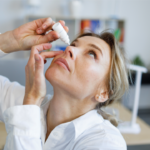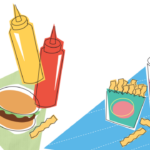
Recent findings reveal shocking news about colorectal cancer rates.
Recent findings reveal shocking news about colorectal cancer rates. Over the past 30 years, colorectal cancer primarily affected individuals over 65; however, research now shows its incidence among young adults has been rising since the mid-1990s. As colorectal cancer risk increases by 1–2% annually in people under 55, how can we tackle this alarming rise in cases?
KNOW YOUR RISKS
Colorectal cancer is the third most prevalent cancer globally and the second leading cause of cancer-related deaths. Most colorectal cancers start as polyps – small growths on the inner lining of the colon or rectum. Often, polyps are harmless and benign, but some can develop into cancer over many years.
Identified risk factors include age, family history, diet, lifestyle, past inflammatory diseases (such as ulcerative colitis and Crohn’s disease), diabetes, obesity, and gut microbiome composition. In the early stages of the disease, symptoms may not be apparent. Over time, and often before a diagnosis is made, changes in bowel habits, abdominal pain, rectal bleeding, and iron-deficiency anemia can develop.
THE IMPORTANCE OF SCREENING
When colorectal cancer is detected early, an estimated 9 out of 10 people can be cured. Currently, regular screening tests include stool tests and colonoscopies. Guidelines for cancer screening have often indicated testing should start at 50, depending on individual risk. Not surprisingly, the rise in cases among young adults prompts a reassessment of this age, leading to recommendations for earlier screening.
In 2021, the U.S. Preventive Services Task Force recommended that screening for colorectal cancer begin at 45 for people who do not have signs or symptoms of colorectal cancer and continue until at least when they’re 75. However, is 45 young enough? One study revealed that between 1999 and 2020, rates of colorectal cancer have risen among children, teenagers, and adults aged 20–39. As colorectal cancer increasingly affects younger individuals, time will tell whether experts will recommend lowering the screening age further. In addition, new blood-based screening tests could be vital in providing a cost-effective and convenient option for early detection and reduced mortality.
LOWERING YOUR RISK: WHAT CAN YOU DO?
The American Cancer Society reports that more than half of all colorectal cancers are linked to modifiable risk factors. Both diet and lifestyle play a crucial role in preventing, lowering risk, and managing colorectal cancer, and we have significant control over these factors.
■ Nutritional choices and wellness habits
A healthy diet is rich in fruits and vegetables, fish, dietary fiber, and dairy, while low in red and processed meats and sugar, which can be beneficial. The Mediterranean diet aligns with these recommendations. It emphasizes foods such as extra virgin olive oil, tomatoes, onions, garlic, oregano, fish, grapes, and whole grains, known for their antioxidant and anti-inflammatory properties to help reduce risk. Smoking cessation, limiting alcohol use, increasing physical activity, and maintaining a healthy weight are other valuable steps.
■ Prevent nutrient deficiencies
Studies have explored the link between vitamin D levels and the risk and survival rates of colorectal cancer. Research indicates colorectal cancer patients often have lower levels of vitamin D, and higher vitamin D concentrations are significantly associated with reduced colorectal cancer mortality. Among its many actions, vitamin D reduces inflammation, oxidative stress, and cancer cell proliferation, helping to explain its protective role in colorectal cancer. Higher calcium, folate, and vitamin C intake have also effectively reduced colorectal cancer risk.
■ Powerful flaxseed
Flaxseed is regarded as a nutraceutical and functional food, with research indicating its consumption may lower the risk of colorectal cancer. Flaxseed’s ability to protect against colorectal cancer can be attributed to its rich source of fiber, omega-3 fatty acids, alpha-linolenic acid, and lignans, particularly secoisolariciresinol digluco-side (SDG). SDG and its metabolites have been shown to protect against cancer, diabetes, and heart disease.
■ A healthy gut microbiota
An imbalanced gut microbiota, or dysbiosis, has been implicated in various digestive concerns, including colorectal cancer. Dysbiosis can disrupt gut permeability, increase inflammation, impair signalling pathways, and impact immune responses.
Interestingly, research is linking disruptions in the gut microbiome with colorectal cancer in young populations. Addressing dysbiosis, such as with probiotics, appears to be a promising strategy to support the prevention and management of colorectal cancer.
It’s never too early to start disease prevention. Work with your health care team to schedule regular screenings, adjust your diet and lifestyle to support your gut health, and reduce your risks of serious illness.
Nutritional choices and wellness habits
Say YES
■ Consuming fresh fruits and vegetables, fish, fiber, organic or fermented dairy, extra virgin olive oil, tomatoes, onions, garlic, oregano, saffron, grapes, and whole grains
■ Regular physical activity
■ Maintaining a healthy weight
Say NO
■ Processed foods, red and processed meats, and sugar
■ Smoking
■ Uncontrolled alcohol intake
Prevent nutrient deficiencies
Vitamin D: 600–800 IU daily or 15–20 mcg daily
Calcium: 1000–1200 mg daily
Folate: 400 mcg daily
Vitamin C: 90 mg daily for adult men and 75 mg daily for adult women
Powerful flaxseed
Ground flaxseed: 1–2 tablespoons daily into foods such as smoothies, oatmeal, and yogurt
Maintaining a healthy gut microbiota
Prebiotic foods such as apples, onions, garlic, chickpeas, lentils
Fermented foods such as kefir, yogurt with live active cultures, pickled vegetables, kombucha
Consider a probiotic supplement.
Stated dosages are general recommendations and can vary per individual. Consult with a health care practitioner for specific guidance on dosing.












